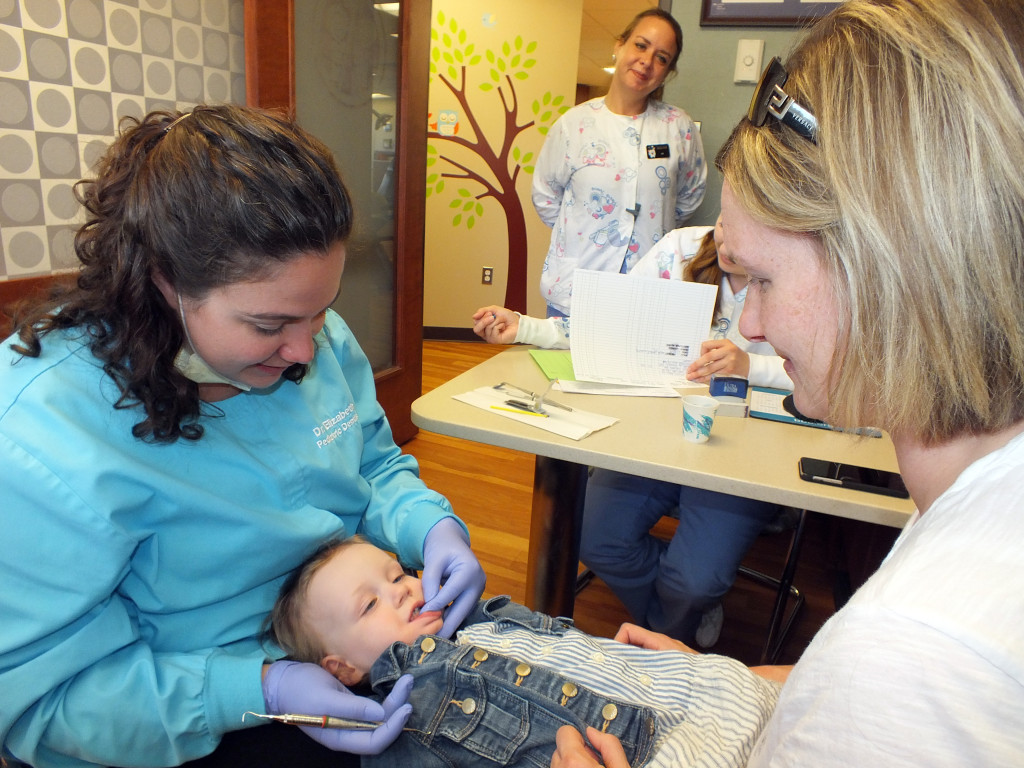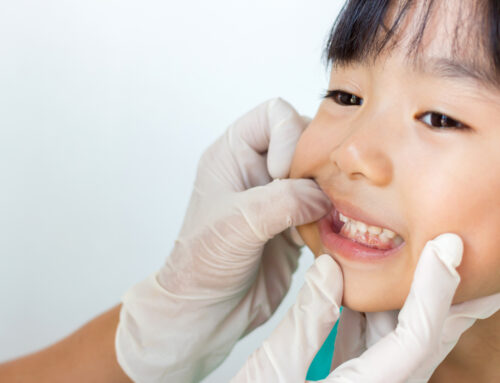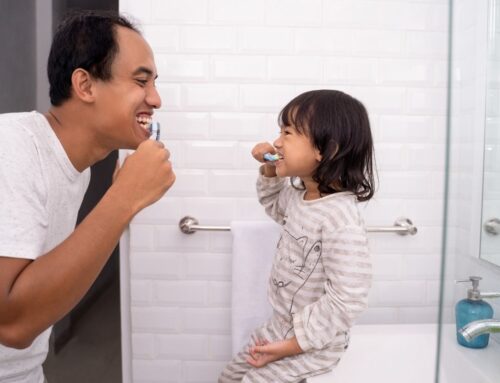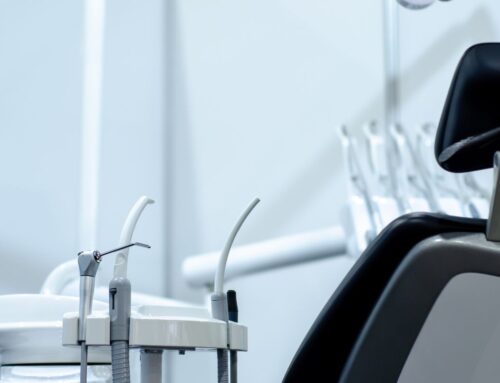Many new parents ask us about the use of pacifiers. Some hospitals even send parents home with newborn pacifiers. Pacifiers are generally safe to use in the very early stages of a baby’s development. Parents often find them an acceptable way to help soothe fussy baby when all else fails, including cuddling, holding, feeding, and diaper changes. There are many resources online and books and articles written about the use of pacifiers, and we encourage you to discuss with your pediatrician what is right for you and your baby.
From the standpoint of your baby’s teeth and oral health, most dentists recommend that a child not continue a pacifier after the age of three. Dr. AJ informs parents that, “after the age of three, it is possible to see effects to the teeth and anterior portions of the jaws if a child uses a pacifier continuously.” It may cause an overbite or open bite (space between upper and lower front teeth that do not interact).

With regards to pacifiers and other habits like finger sucking, there are several factors at play determining how much of an effect the habit has on the teeth/jaws. Intensity of sucking is important as a child that gently places a finger near the lips for comfort is much less likely to move teeth than a child inserting the thumb in between the teeth and creating an oral seal. Duration is most critical. The amount of time (per day and number of days) is the most critical factor in regard to likely negative effects on the teeth. Position of the thumb/digit/pacifier shape matters, but much less than the above two factors.
Another issue many parents face is that the longer you wait to get rid of the pacifier, the harder it can get. Therefore, you may want to start sooner rather than later. Another suggestion that has worked for many families is to begin cutting the tip of the pacifier to make it less enjoyable and harder to create the suction effect. Each week, clandestinely snip a tiny bit of the pacifier tip until the child finds it impossible to suck it anymore or unsatisfying and gradually the habit is weaned.
Besides affecting the teeth’s natural positioning, The Academy of General Dentistry reports that pacifier users are more likely to suffer from acute middle ear infections. Pacifier use beyond the age of five can also delay your child’s baby teeth from falling out to make room for their permanent teeth. As hard as it may be to have your child give up his or her pacifier, in the long run, prolonged use can cause risks to overal dental health and can make certain orthodontic problems occur or become worse.
If you have any other questions concerning this topic, please don’t hesitate to ask us. We are here to help!
About Pediatric Dentistry and Orthodontic Specialists of Michigan, the offices of Drs. Delaney, Plunkett, Ralstrom, Makowski, Thanasas, Ker, and Associates
Pediatric Dentistry and Orthodontic Specialists of Michigan have specialized in pediatric dentistry and orthodontics since 1968. Our family-friendly office gives patients and families a more comfortable and consistent experience with dentistry from the very beginning. The pediatric dentists treat children from newborn to 18 years of age while our orthodontists provide care for both children and adults, including being an Invisalign preferred provider. The ability to treat all special needs patients reaches beyond our facility, which has treatment rooms available for children who require additional privacy. Valued hospital affiliations allow dental services to be performed at DMC Children’s Hospital and St. John Providence Health System when needed. Our specialists are also on staff at Henry Ford and Beaumont hospitals.




